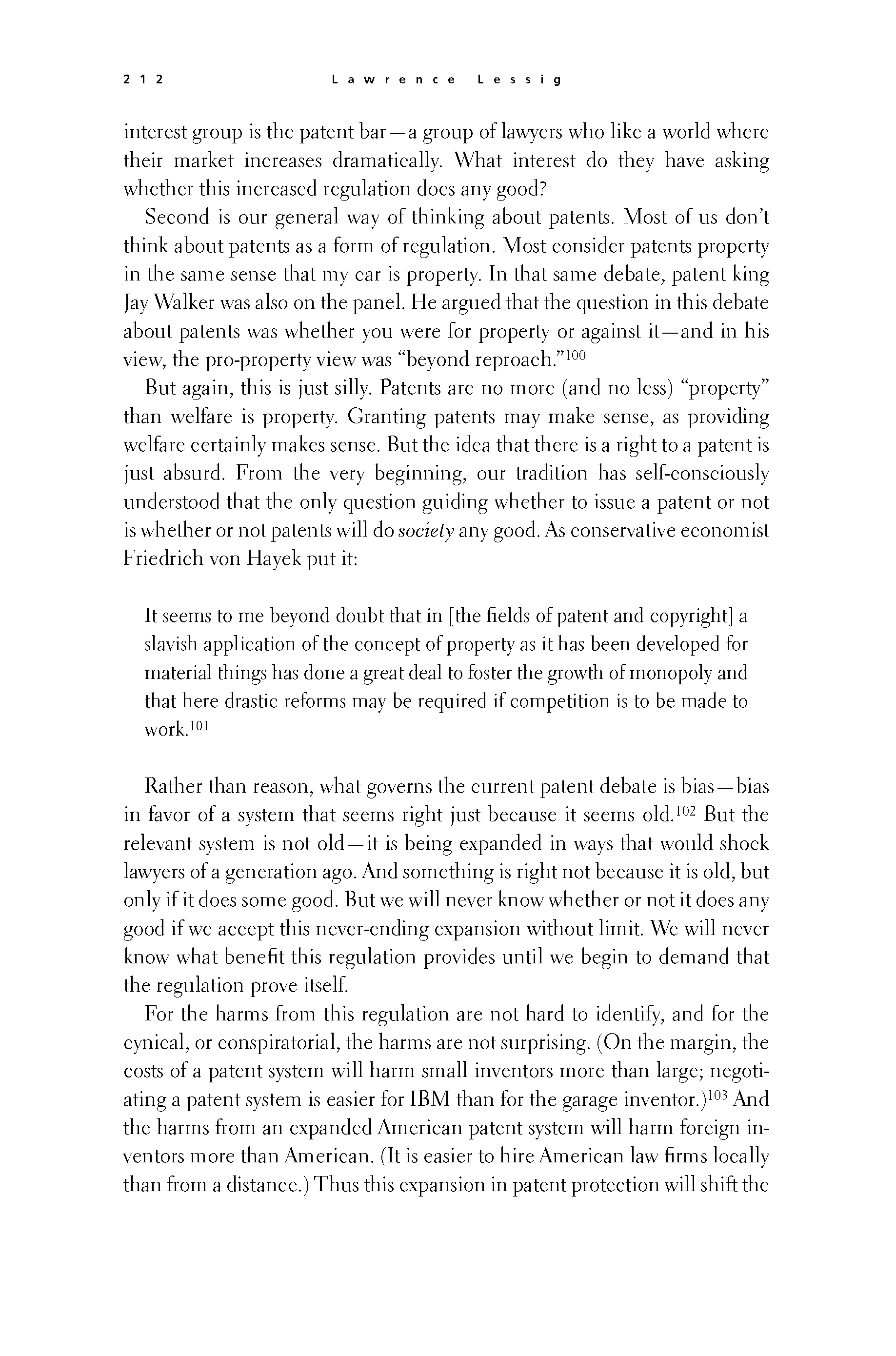 p211 _
-chap- _
toc-1 _
p212w _
toc-2 _
+chap+ _
p213
p211 _
-chap- _
toc-1 _
p212w _
toc-2 _
+chap+ _
p213
interest group is the patent bar -- a group of lawyers who like a world where
their market increases dramatically. What interest do they have asking
whether this increased regulation does any good?
Second is our general way of thinking about patents. Most of us don't
think about patents as a form of regulation. Most consider patents property
in the same sense that my car is property. In that same debate, patent king
Jay Walker was also on the panel. He argued that the question in this debate
about patents was whether you were for property or against it -- and in his
view, the pro-property view was "beyond reproach."[11-100]
But again, this is just silly. Patents are no more (and no less) "property"
than welfare is property. Granting patents may make sense, as providing
welfare certainly makes sense. But the idea that there is a right to a patent is
just absurd. From the very beginning, our tradition has self-consciously
understood that the only question guiding whether to issue a patent or not
is whether or not patents will do _society_ any good. As conservative economist
Friedrich von Hayek put it:
____ It seems to me beyond doubt that in [the fields of patent and copyright] a
____ slavish application of the concept of property as it has been developed for
____ material things has done a great deal to foster the growth of monopoly and
____ that here drastic reforms may be required if competition is to be made to
____ work.[11-101]
Rather than reason, what governs the current patent debate is bias -- bias
in favor of a system that seems right just because it seems old.[11-102] But the
relevant system is not old -- it is being expanded in ways that would shock
lawyers of a generation ago. And something is right not because it is old, but
only if it does some good. But we will never know whether or not it does any
good if we accept this never-ending expansion without limit. We will never
know what benefit this regulation provides until we begin to demand that
the regulation prove itself.
For the harms from this regulation are not hard to identify, and for the
cynical, or conspiratorial, the harms are not surprising. (On the margin, the
costs of a patent system will harm small inventors more than large; negoti-
ating a patent system is easier for IBM than for the garage inventor.)[11-103] And
the harms from an expanded American patent system will harm foreign in-
ventors more than American. (It is easier to hire American law firms locally
than from a distance.) Thus this expansion in patent protection will shift the
[[212]]
p211 _
-chap- _
toc-1 _
p212w _
toc-2 _
+chap+ _
p213